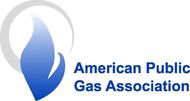
On January 26, APGA filed comments with the Federal Energy Regulatory Commission (FERC) in response to a November 20 proposed policy statement that would potentially allow interstate pipelines to recover through a tracker mechanism certain capital expenditures made to modernize pipeline system infrastructure to enhance reliability, safety and regulatory compliance.
In its comments, APGA expresses strong opposition to the tracker proposal communicating that trackers automatically increase rates without any of the protections afforded by Section Four of the NGA. The comments also state that the five standards that are proposed as safeguards “are inadequate to the task as they simply do not provide the consumer protections afforded under NGA Section Four.” The comments further state that if the commission determines to proceed with the proposed policy statement, “the five standards need to be considerably strengthened if they are intended to prevent customers from being exploited by natural gas companies.” A copy of APGA’s comments is available on the APGA website at www.apga.org/comments.
During President Obama’s annual State of the Union speech, he addressed climate change, stating that “no challenge -- poses a greater threat to future generations than climate change." Prior to his speech, the administration announced a goal of cutting methane emissions from the oil and gas sector by 40 to 45 percent from 2012 levels by 2025. Efforts to address emissions would be at the production level and at the transmission and distribution levels. This will certainly have both direct and indirect impacts on public natural gas systems. The president also discussed the need for investments in infrastructure as his administration announced plans to push for the creation of a new class of municipal bonds to spur private investment in U.S. infrastructure projects. The bonds, called Qualified Public Infrastructure Bonds, would have no expiration date and there would be no cap on issuing bonds. In addition, the debt created by the bonds would not be subject to the Alternative Minimum Tax, which limits the tax benefits and exemptions that high-earning individuals can claim. It’s important to note that the creation of these bonds would require the passage of legislation, which may be difficult.
In response to the president’s comments on methane emissions, APGA released a press statement communicating that the “safe and reliable delivery of affordable natural gas is a priority for our nation’s public natural gas utilities.” APGA also communicated that public natural gas systems continually evaluate their systems and make infrastructure improvements whenever and wherever needed. In regard to the president’s focus on climate change, APGA stated that the direct-use of natural gas is part of the solution to addressing greenhouse gas emissions. Increasing the direct-use of natural gas is the surest, quickest and most cost-effective avenue to achieve significant reductions in greenhouse gases and therefore should be a critical component of any effort to address climate change.
APGA has been working to address liquefied natural gas (LNG) tax equalization. Under current law, the federal highway excise tax on LNG both for use in motor vehicles and diesel are taxed on a volumetric basis at 24.3 cents per gallon. LNG is less energy dense than diesel, as it requires 1.7 gallons of LNG to equal the energy content of one gallon of diesel. Based on this fact, LNG trucks will consume more fuel than their diesel counterparts and therefore will pay more in federal highway taxes than their diesel counterpart. For example, NGVAmerica, with whom APGA has been working to address this issue, has communicated that a diesel truck traveling 100,000 miles per year at five miles per gallon consumes 20,000 gallons of diesel fuel and would pay $4,860 in federal taxes. An identical LNG truck would require 34,000 gallons of LNG to travel the same distance. The LNG truck would pay $8,262 in taxes or an additional $3,402 per year in taxes for using LNG.”
This additional tax burden provides a strong disincentive for consumers to purchase the LNG-powered truck. Taking into account the incremental cost of an LNG truck, which can be up to an addition $60,000, the additional fuel tax burden may be sufficient to prevent fleets from using cleaner burning LNG. APGA strongly supports and will continue to work with Congress to pass legislation that would remedy that disincentive by taxing LNG on an energy content basis, as compressed natural gas (CNG) is taxed. Effectively, this would level the playing field between LNG and diesel.
APGA is pleased to announce that FERC Commissioner Norman Bay will serve as keynote speaker for APGA’s Annual Conference, which is scheduled for July 26-29 at the Omni Interlocken Hotel in Broomfield, Colo. Commissioner Bay was nominated by President Obama to serve as a FERC Commissioner in January 2014 and was confirmed by the Senate that July for a term that expires June 30, 2018.
Commissioner Bay will take over as Chairman of FERC on April 15, 2015. Prior to his appointment to FERC, Commissioner Bay served as FERC's Director of Enforcement since 2009. Prior to joining FERC, Mr. Bay was a law professor at the University of New Mexico and he also served as U.S. Attorney for New Mexico from 2000 to 2001. We hope you will make plans to attend APGA’s Annual Conference! Information on the Annual Conference can be found at www.apga.org/denver.

 RSS Feed
RSS Feed
